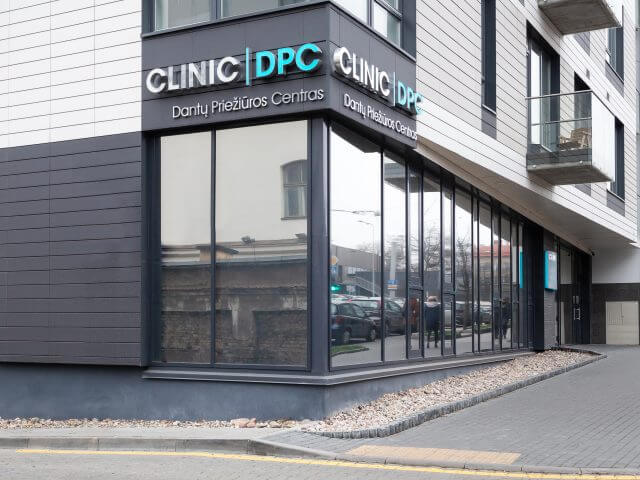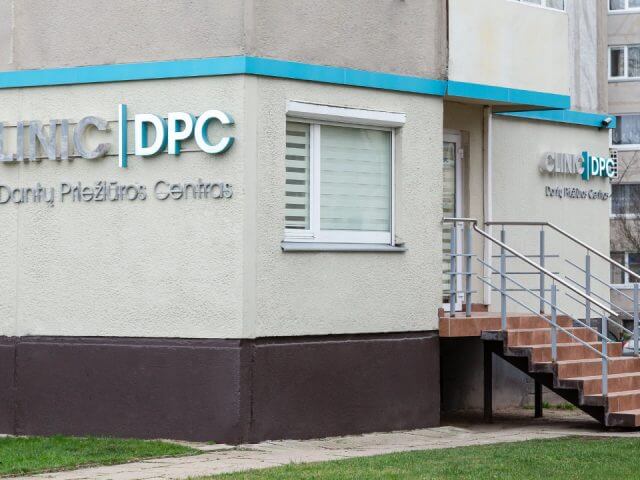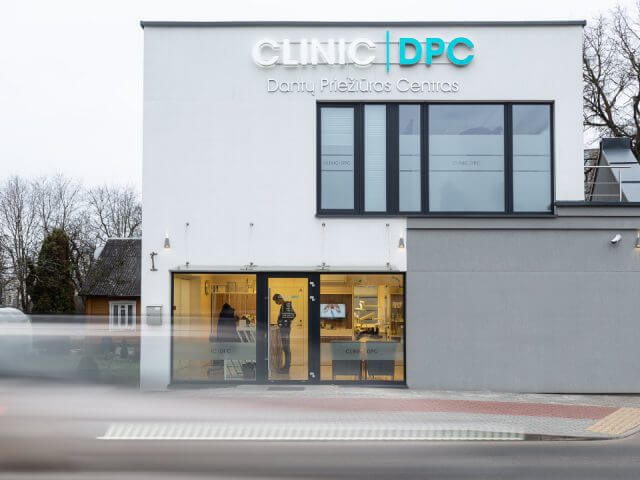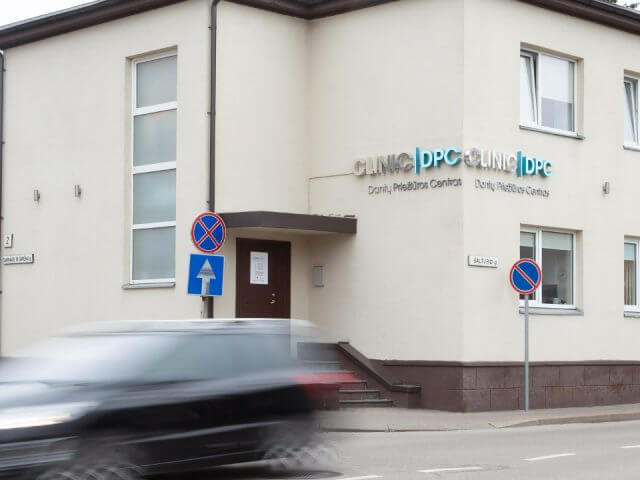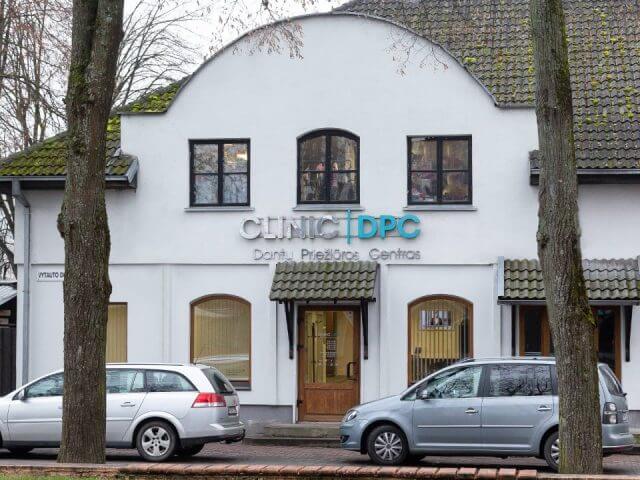Dental implantation – what is it?
A dental implant is the artificial root of the tooth. During implantation, the implant is screwed into the jaw. It replaces the root of the missing natural tooth. When the implant is attached, an artificial tooth, called a dental crown, is screwed on it.
Loss of tooth implants allows us to restore the root of the tooth and perform prosthetics, without damaging the adjacent teeth. The prosthesis restores the 80% of the chewing function. This means that the patient can completely chew soft and hard food, but must avoid very solid foods, such as fried bread and nuts.
Implants hold an artificial crown or dental bridges in the same way that the roots hold the tooth in place. Dental implants help to recover lost teeth without damaging nearby teeth. Implants can restore an individual tooth or the entire toothless jaw.
Dental implantation procedure consists of the following main steps:
- • Consultation, preparation of a treatment plan
- • Implantation, temporary prostheses
- • Control
- • Permanent crown prosthesis on implants

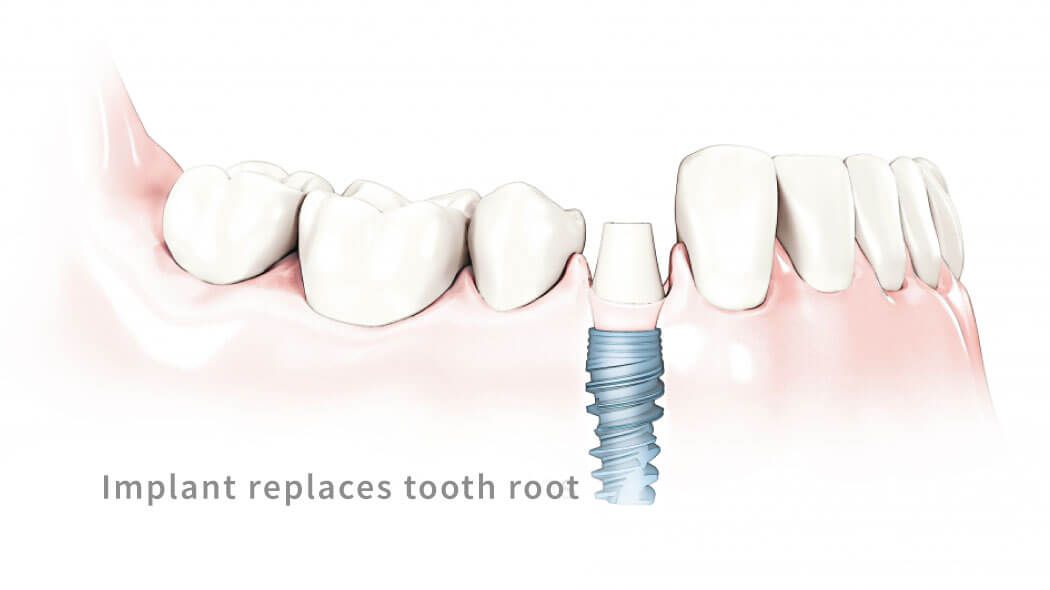
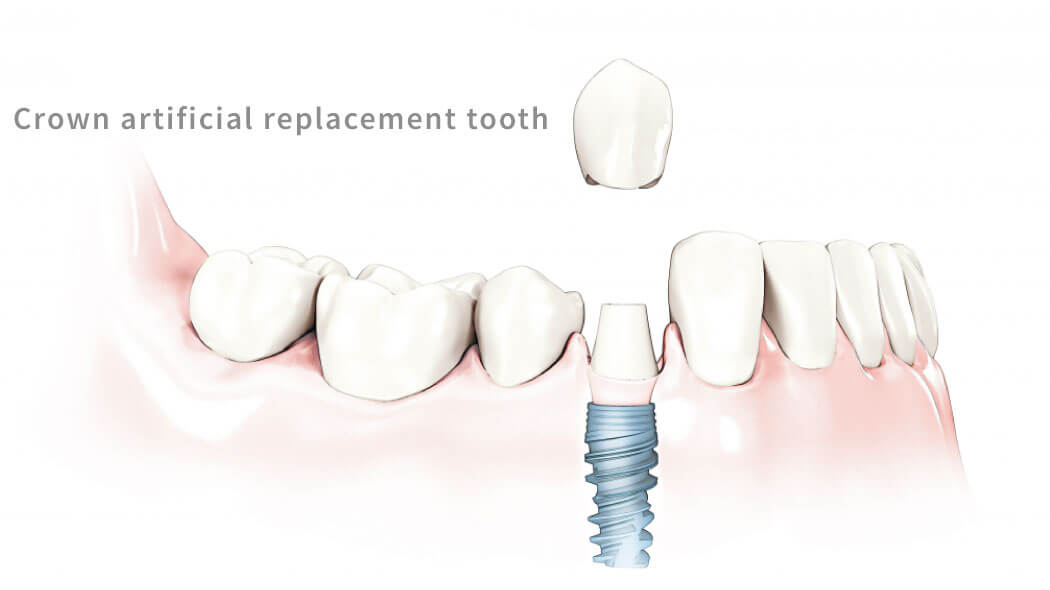
What are the advantages of dental implants over prosthetic appliances?
Implants restore 60-80% of the chewing function, prevent further loss of the jaw, and create a sensation of natural teeth in the mouth. Unlike wearing prostheses, there is practically no discomfort experienced with implants. Dentures need to be removed, specially maintained, and the chewing becomes much hard. Dentures will always remind you that these are not your teeth. Sometimes such a fact is unpleasant and causes anxiety to the patient. The most advanced prosthetic appliances will not look like real teeth. Implants are very similar to healthy teeth when seen by others and felt by the patient. With implanted teeth, chewing is convenient, and you do not require any additional dental care.
Advantages of implants:
• Long-term effective solution
• Restoration of normal chewing functions.
• Prevention of functional and physical changes.
• A reliable and convenient solution for those who have lost all teeth.
• Protection and preservation of other healthy teeth
When it’s necessary to perform dental implantation
Now the information is only presented about what happens when teeth are not restored in time. There is no specific time for this procedure, but it should not be delayed.
Dental implantation – is the most advanced and effective way to restore chewing function when one or more teeth are missing. Modern methods allow you to successfully apply implantation even when all teeth are missing in the jaw. Implantation is also used for stabilization of prosthetic appliances.
If the teeth are not restored for a longer period of time, the amount of bone decreases, the adjacent teeth turn to the side of the defect, the teeth in front lengthen. When more teeth are lost, even a person’s face changes – the cheeks, lips are stuffed, the nose and chin look protruded, the person looks visually older. Not only appearance, but also health, psychological well-being and self-esteem will suffer.
When is dental implantation prohibited?
Dental implantation is not recommended for persons under 16-17 years of age. People who suffer from chronic diseases, heavy smoking patients (who smokes more than 20 cigarettes a day) should not get implants, because their condition makes attachment and healing of the implant much harder, so the procedure may be ineffective.
Dental implantation methods:
Immediate implantation
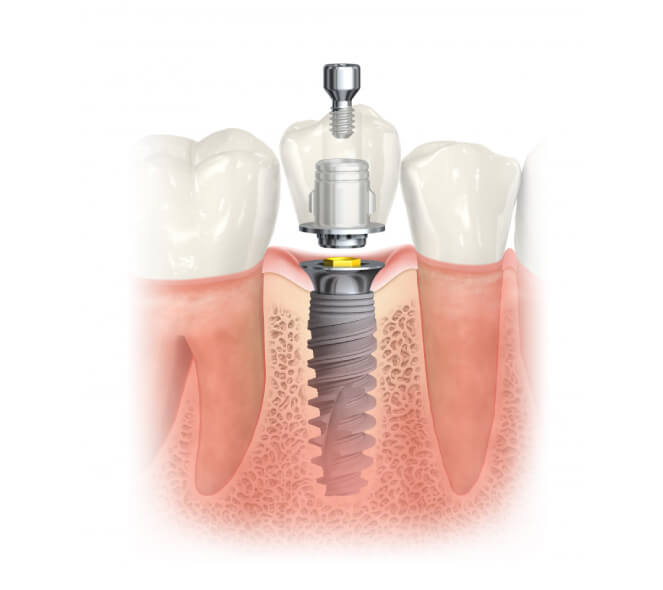
“All-on-4®”
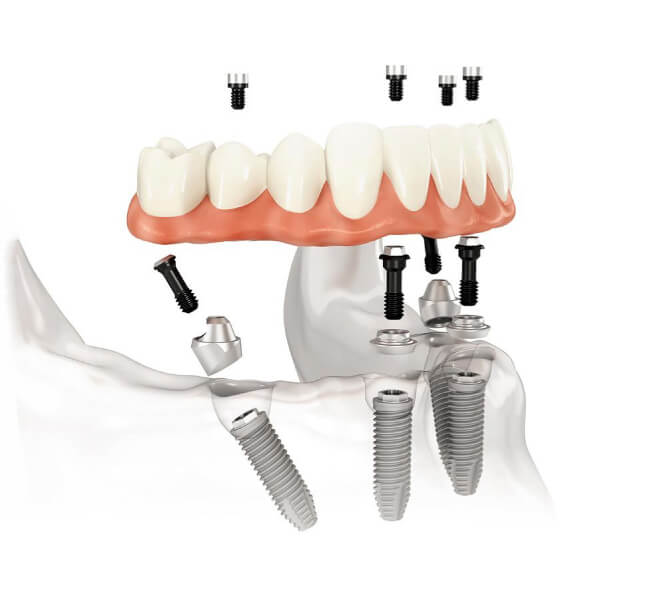
Zygoma
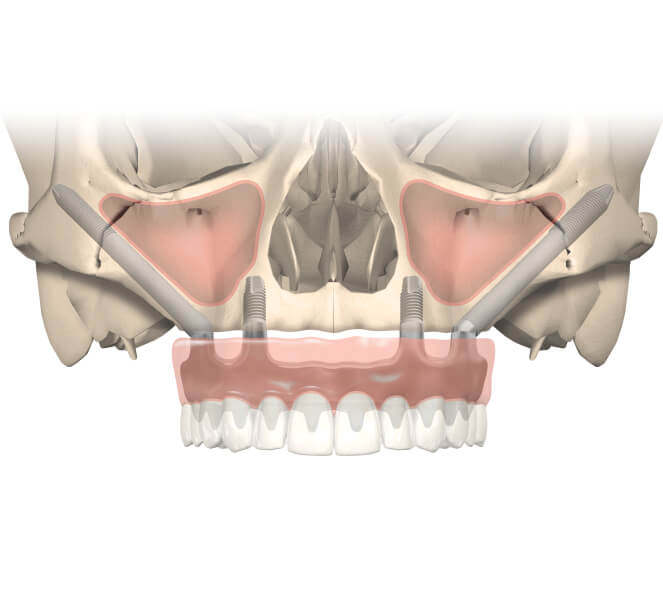
Zirconia dental implants
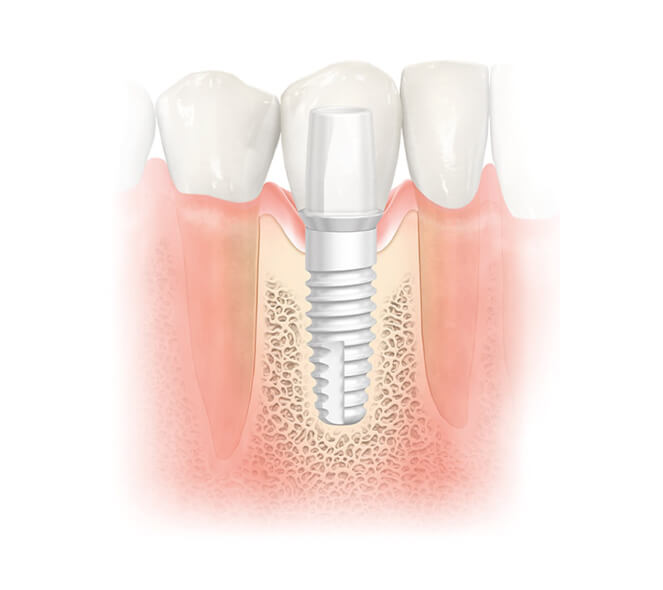
“Trefoil” system
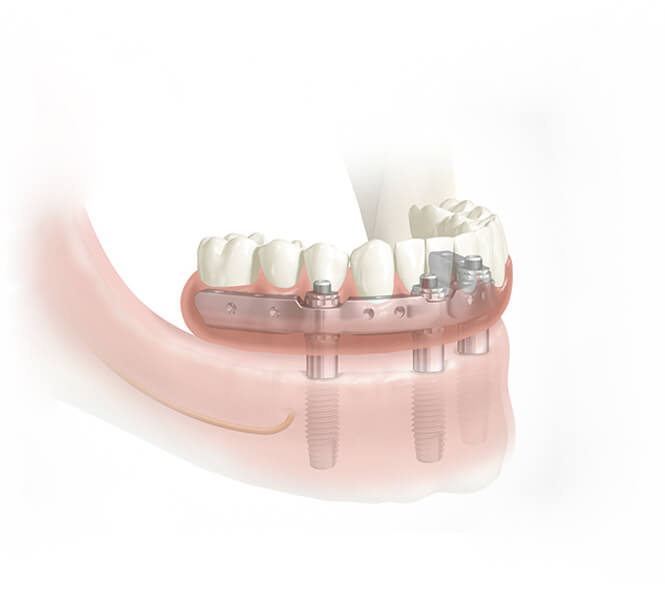
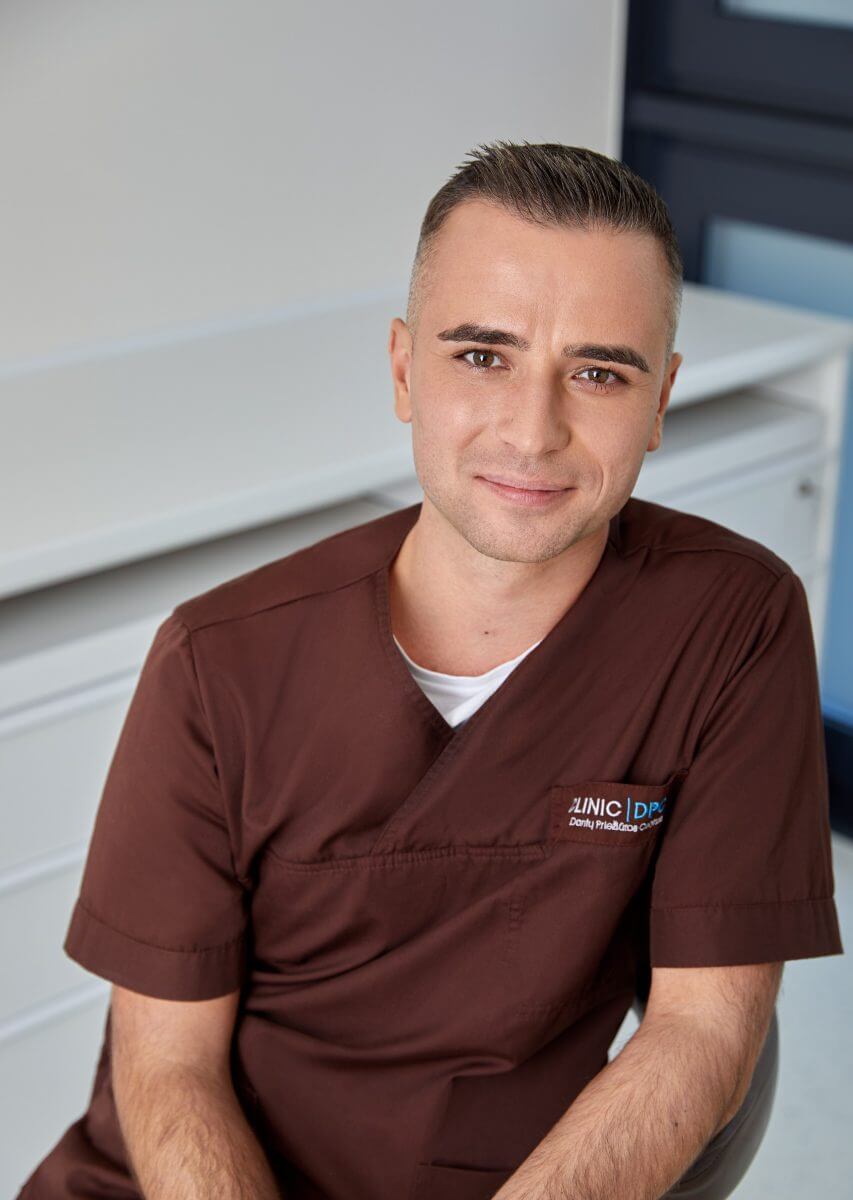

Preparation for Dental Implantation
Before the implantation procedure, the dentist plans a consultation with the patient, carries out X-ray examinations, and evaluates the general state of health of the patient. Implantation should not be performed if the patient has severe cardiovascular, liver, oncological diseases, or diabetes. Due to these diseases, the patient’s body may not be strong enough to accept the implant. When the body rejects a foreign body, it will not heal and may even damage to surrounding tissues. Implantation is not recommended for people under 17 years of age, as their jaw is still forming. When dental positions change, but the implant remains in place, unforeseen complications can lead to perversion of teeth. We recommend to postpone your dental procedures during pregnancy. Implants can also have a bad time healing up for heavy smokers and alcohol abusers, because they do not create the necessary circumstances for accepting a foreign body.
The course of Dental procedure
1. Consultation with the dentist, preparation of the treatment plan.
During the consultation, the dentist examines the patient’s oral condition and chooses the method of treatment. It is clarified whether or not there are diseases that may affect implantation and healing up of an implant.
2. Implantation and attachment of a temporary tooth.
Before the implantation procedure, local anesthesia is performed to prevent the patient from feeling any pain during an operation. The procedure is simple and does not cause any discomfort. The implant is screwed within 10-15 minutes. The total duration of the procedure depends on the number of teeth implanted and the method used. After the implant is screwed in, a temporary tooth or a special healing head will be attached to it. It takes about 4-6 months for an implant to fully heal up.
3. Manufacturing of permanent crowns, bridges and prostheses.
After the implant healing period, the doctor will collect your dental imprint. The color of future permanent teeth is selected. The manufacturing of new teeth takes place using the most advanced technology that allows you to create a prosthetic solution that is comfortable and completely indistinguishable from healthy, natural teeth.
4. Attachment of permanent prostheses to the implants
Custom dental crowns, bridges or prostheses, are attached to implants with special instruments. The doctor individually choses a screwed-on or cemented structure. The screw-on structure is convenient in that new teeth can be easily removed from the implants, and after making the necessary adjustments the implant is screwed back in.
How should you behave after dental implantation?
- Short-term discomfort is often experienced after dental implantation: the surrounding tissues may be puffy, numb, and bruising may occur. Cold compresses are recommended to reduce the swelling.
- Eating is only allowed when the effects of painkillers pass, but not earlier than two hours after the effects seize. For the first 24 hours, light, soft, room temperature food is recommended.
- Do not rinse the oral cavity on the first day after surgery, do not touch the wound with your fingers and tongue. The day after the procedure, gently rinse the oral cavity with an antiseptic solution about 10 times a day. Rinsing is recommended for 10 days or until the procedure for removing the threads.
- Good oral hygiene is very important, especially after eating. In the first days after surgery, when eating and brushing your teeth, be careful not to damage the area or threads of surgery.
- Do not lick the wound and do not touch the threads with your tongue. The wound should then be cleaned with a sterile swab.
- After surgery, it is necessary to take prescribed medications as instructed by your doctor, avoid physical exertion, try not to get a cold and do not go to the sauna for the first week. Smoking and drinking alcoholic beverages is not recommended for two weeks. If you follow these recommendations, you healing process will be smooth and successful.
- If the wound was sewn with melting threads, they will dissolve by themselves. If the patient is experiencing discomfort, melting threads can also be removed 10-14 days.
Dental implantation problems and complication
Although 98% of teeth implantation procedures are successful, but there is always a room for an unfortunate error. In very rare cases, the patients experience:
- • Postoperative bleeding
- • Damage to adjacent tissues
- • Infections in the implant area



